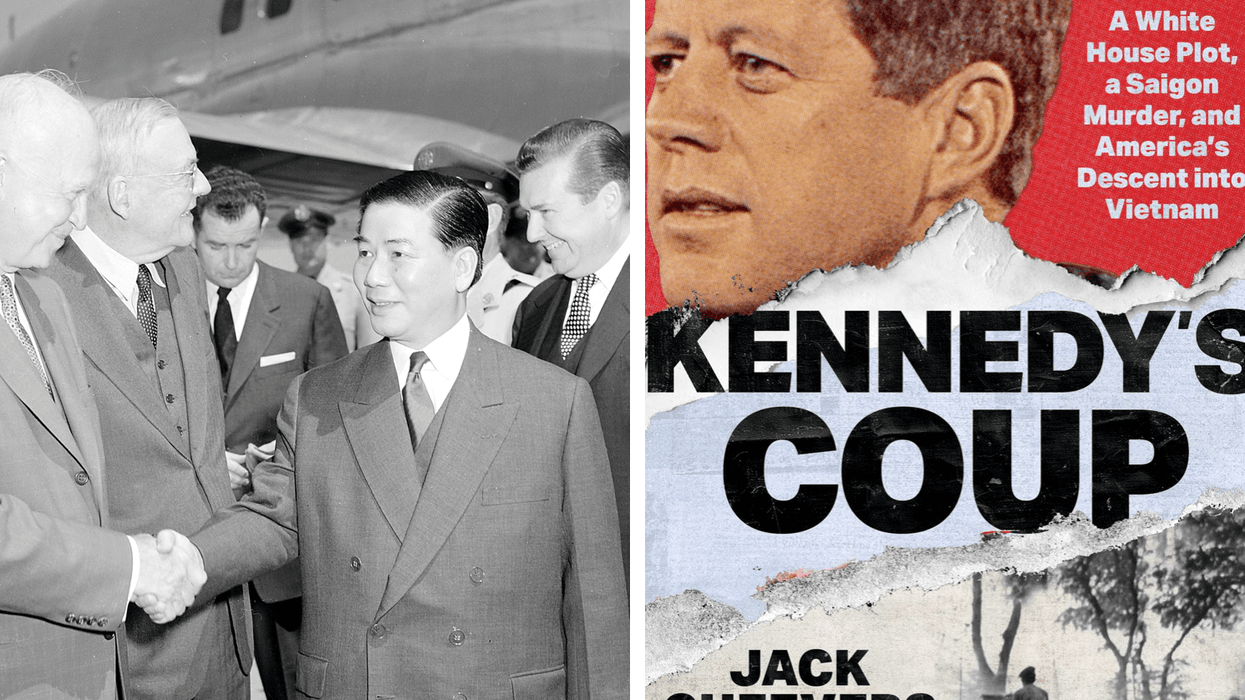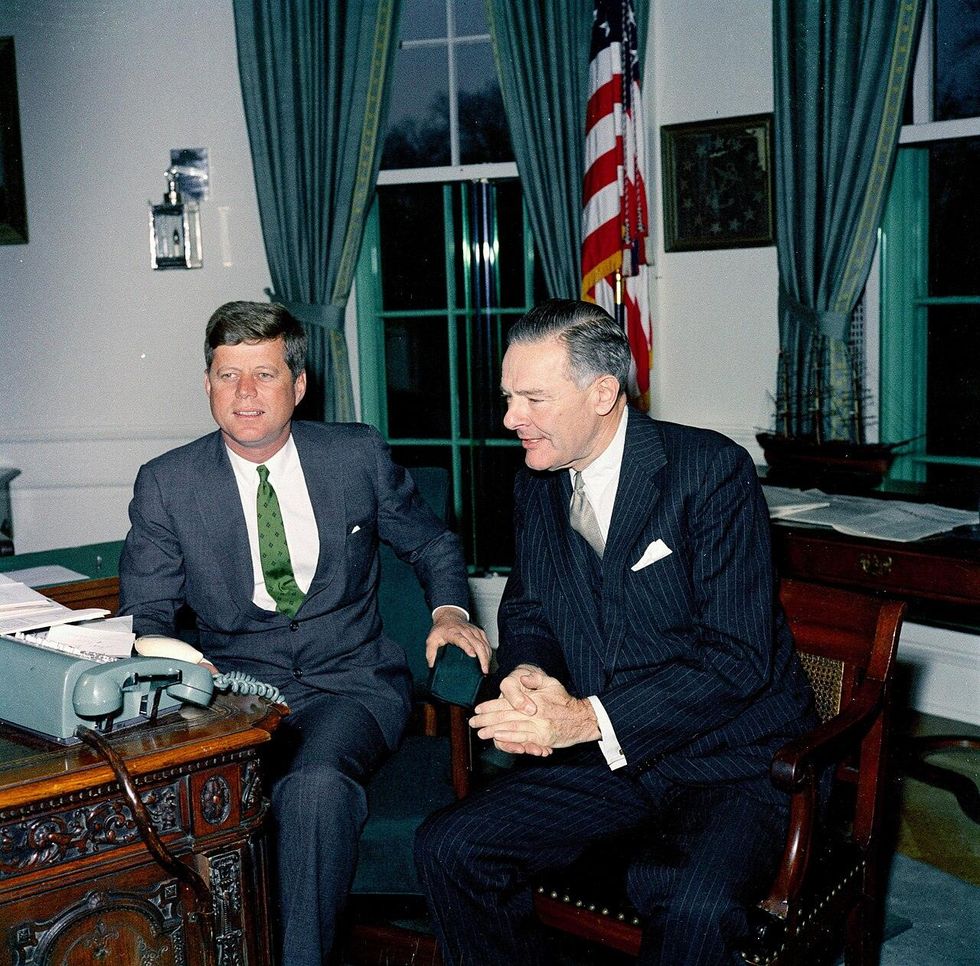“Iran does want to turn the Houthis into a Yemeni version of Hezbollah, thereby turning Yemen into a second Lebanon, where a militia is constantly holding the government hostage,” argued Representative Ed-Royce (R-Calif.) in an impassioned 2017 speech. Royce was speaking on the House floor in opposition to a bipartisan push in Congress that would have invoked the War Powers Resolution to end U.S. involvement in the war in Yemen.
“The Houthis’ slogan is derived from Iran’s own anti-U.S. slogans,” Royce continued, adding, “Yemen has become another front in Iran’s quest for regional dominance.”
While Royce relayed these and similar arguments for more than 10 minutes, one key fact went unmentioned: he was reading the talking points of Saudi Arabia’s lobbyists, at times verbatim. As first reported by Lee Fang of The Intercept, that morning Royce’s office, and several other congressional offices, received “Facts about the Houthis and Iran” from lobbyists working on the Kingdom’s behalf. Those Saudi lobbyist talking points then formed the basis of a speech from Royce, then Chairman of the House Foreign Affairs Committee, at a pivotal juncture in U.S.-Saudi relations.
Today, Royce is under fire once again for his connections to the Saudi regime, as Democracy for the Arab World, or DAWN, has just released a spotlight, which I provided research for, of the former congressman in its “Lobbyists Hall of Shame,” for his work as a lobbyist on behalf of the Saudi and oppressive Sisi regime in Egypt.
Royce’s path to becoming a lobbyist for dictators was paved while he was still in Congress, and a prime target of Saudi lobbyists. Foreign Agents Registration Act filings analyzed in two previous reports I authored for the Center for International Policy show a pattern of Saudi lobbyists meeting with Royce and his staff during the waning years of his lengthy congressional tenure. This included multiple meetings between Royce and Saudi lobbyists working for Hogan Lovells, the firm that distributed the talking points recited by Royce.
While in Congress, Royce also met, on multiple occasions, with Saudi lobbyists working for the McKeon Group, founded by former Rep. Howard “Buck” McKeon (R-Calif.), who had served as chairman of the House Armed Services Committee. Within two weeks of one meeting between the McKeon Group and Royce, the congressman’s campaign committee received $2,000 from the “Friends of Buck McKeon,” which was filled with leftover money from McKeon’s own campaigns.
This was indicative of a larger pattern established by Royce while in Congress — receiving contributions from the Saudi lobby. In the two years prior to Royce’s 2018 announcement that he would not seek reelection, his campaign committee received at least $16,000 from FARA- registered firms working on behalf of Saudi Arabia. This included $3,500 from Brownstein, Hyatt, Farber, Shreck, which would soon be paying Royce much, much more.
The lobbied becomes the lobbyist
When Royce left Congress in early 2019 he did what most former members do — he became a lobbyist. Within two months of leaving government service, Royce was named policy director at BHFS. Though Royce could advise and “consult,” he was technically not a lobbyist, as congressional rules require a one-year “cooling off period” during which former members of Congress are prohibited from lobbying their former colleagues. After Royce’s one-year period was up, however, he wasted no time as he signed up to work first for Liberia, and then for other foreign interests, notably the governments of Egypt and, of course, Saudi Arabia.
The script has been flipped with Royce now playing the role of lobbyist. He has contacted his former colleagues hundreds of times on behalf of these authoritarian regimes and has personally made more than $10,000 in political contributions, principally to to BHFS’s political action committee which has previously, and on multiple occasions, made contributions to members of Congress on the exact same day they or their staff met with BHFS lobbyists representing Saudi Arabia.
DAWN, numerous other organizations, including the Quincy Institute, and more than 5,000 petition signatories are now calling on members of Congress to stop meeting with Royce and other BHFS lobbyists until they cut their ties to the two regimes. Congressional offices refusing to meet with him could also limit Royce’s work for the 27 domestic and international businesses he lobbied on behalf of in 2021, including the defense contractor BAE Systems, COVID-19 vaccine supplier Moderna, China’s tech giant Tencent Holdings, and SalesForce, to name just a few.To be sure, Royce’s post-congressional lobbying career isn’t the exception; it has become the norm. It’s now extraordinarily common for former members of Congress to lobby on behalf of foreign governments. While this phenomenon might be alarming in general, it’s particularly concerning when the lobbying is done on behalf of abusive and aggressive regimes, deepening U.S. involvement in the catastrophic war in Yemen, and entrenching a militarized U.S. Middle East policy that appears increasingly based on multi-billion-dollar arms sales to brutal autocrats. Doing nothing about this revolving door serves only to perpetuate the failed policies of the recent past.





 President John F. Kennedy and Henry Cabot Lodge Jr. in 1961. (Robert Knudsen/White House Photo)
President John F. Kennedy and Henry Cabot Lodge Jr. in 1961. (Robert Knudsen/White House Photo)










